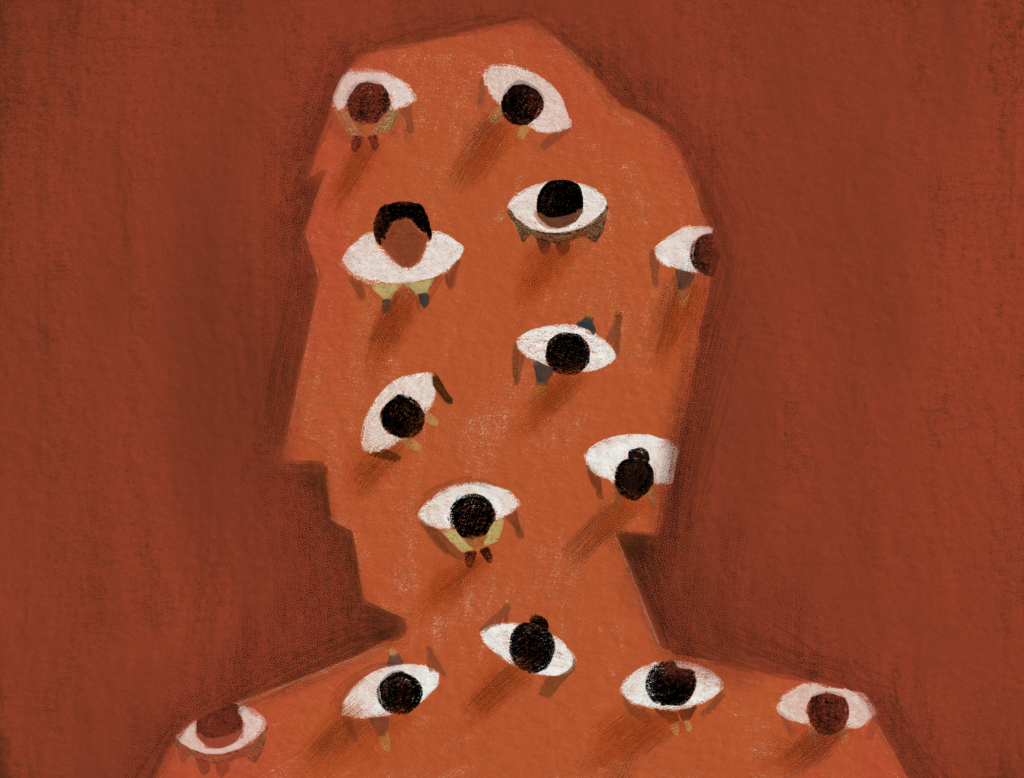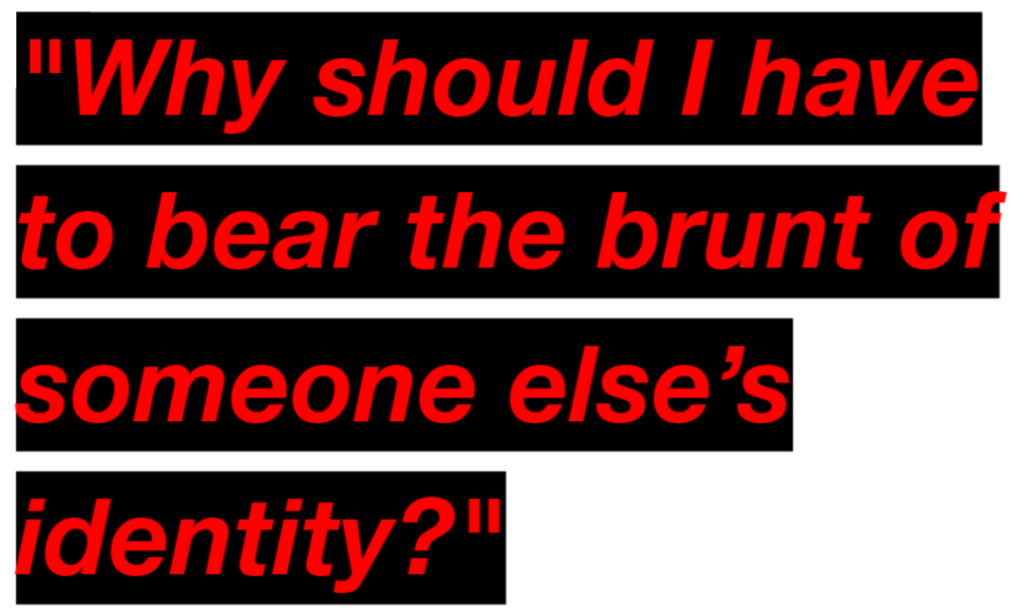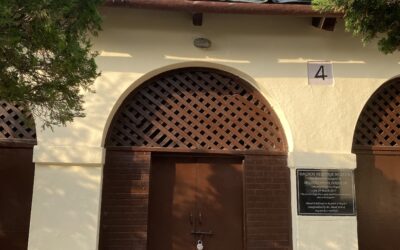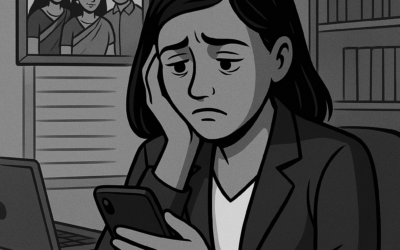The following blog has been co-written by co-fellows Daraab Saleem Abbasi and Sourav Roy, from India Fellow 2022 cohort.
An old apartment building like many others that you will find in this city. A parking lot in the stilts of the ground floor and narrow staircases leading to the 4 flats, the doors of which opens right in each other’s swing. The monsoon had passed by now. This house, however, was still going through its aftermath. The ceilings and walls drop flakes of paint and the house smells musty. No repair work would be done and while there were sockets for fans in every room, this 1BHK wouldn’t come with any. The rent isn’t too much nor is it a good deal. But jaisa bhi hai kum se kum hai toh.
“Yahan ande aur non veg khaane mein koi diqqat toh nahin hai na?”
and the broker immediately asks,
“Mohammedan kaun hai?”
“Main hoon.”
The rush with which we were escorted and shown the house suddenly takes a 2 minute break as the brokers spoke amongst themselves in a small huddle. The committee breaks formation and presents a solution to Sourav and I.
“Aap ek kaam karna lease pe Sourav se sign karwa lene aur owner ko apna naam mat batana”

Moving cities is a big task for some and not so much for others. For me, it lies somewhere in the middle. As someone who stays excited about his work but also feels overwhelmed and unsure of his abilities to fulfil what will be asked of him, looking for a house was not a priority for me neither in my concerns nor in my efforts.
On one end the “fragile” stickers, the “this side up”, the endless laces of tape, packing, unpacking, the logistical, the tangible, the immobile.
The other is seemingly intangible. Yet the mere sight of the incomplete kitchen rack, the messy study table, the clumsy bed, the long, winding, to-do & to-buy lists begin to sink the frail weightless anchor of 21st century life. No amount of cleaning, adding, removing, replacing or rearranging ever moors the ship.
And in between loiters the perpetually open rucksack.
“Ji main yaha ek sanstha mein naukri karta hoon“
“Woh Ghanshyam Nagar mein, Gymkhana ke paas”
“Main Kalkatta se hoon“
“Aur main Gurgaon“
“16-17 mahine yahan rahenge”
“Ji Hindu Kshatriya“
“Ji Musalman“
The deja-vu smiles or visible hesitance of acquaintances, both so familiar yet so uncanny. Taking different forms as I grow up and change cities for the third time now.
My relationship with religion has always been that of a keen observer. Born to a Hindu mother and a Muslim father in Delhi, I was exposed to and participated in different forms of worship. The stories that I was told, the values that were passed on and the practices that I saw unfold. These explorations, however, were restricted to one off days and religious festivals. And while I carry my father’s name and like to think of myself as both Hindu & Muslim, somehow, being a “non-practicing” individual now, I end up feeling like a visitor to both. Feeling as though I only carry half of both.
My time in Bangalore in most ways made me simply forget the fact that I was a Muslim and how that means something in this world. However, there have been many instances in the last few years acting as triggers of different feelings stemming out of or deeply connected to my identity as ‘half-Muslim’
Be it the CAA – NRC protests, Beef Bans, Cow lynchings or the research that I did for my pre-thesis project about propaganda; reading up about misinformation and how that has led to polarisation and rising communal tensions and violence. Importantly, the Delhi Riots of 2019 – the violence and chaos that I couldn’t have imagined. In the city that I call home. In lanes and marketplaces that I knew. And intersections that looked so familiar. The amount of deaths that took place in the country’s capital was something that I couldn’t believe. This was Delhi.
More than that, I couldn’t believe that it wasn’t being spoken about in my social circles. These riots for the first time made me feel fear. Reading the news had been comical, confusing, saddening and scary.
Sourav adds, “I am unable to call what I had felt then. In retrospect, I was probably just unwell, the strings of my sanity had spiralled out of hand and dropped deep into doom. How can I be afraid? Can I? Am I supposed to be afraid? Am I afraid now? Was I afraid then? Rage, yes. Ferocious, fist-clenching, jaw-grinding, media fueled, exhausting, draining, mind-numbing, defeated rage.”
He further says, If I had a rupee for every time since, that I have publicly come clean of my authorised identity as a Hindu-born, Bengali-speaking, cis-male, convent-educated, upper-middle class, second generation Bangladeshi immigrant, from Kolkata, I’d have stopped by now. But I haven’t, and the rupee doesn’t seem to be getting any more valuable than it is as I write this, anytime soon.
“I don’t have to tell you things are bad. Everybody
knows they are…“
Words of Paddy Chayefsky 46 years ago and look where you are, and I am, and where the dead of the Jahangirpuri riots are now.
This city of Bhuj, however, has been a series of varied reminders. Discussions with well-meaning colleagues, interactions with inconsequential locals, experiences with cunning brokers, purist landlords and the frequently overheard conversations about neighbourhoods where thosepeople live.
In appearance, I’m a 2000s raised nobody amidst the people of Bhuj City. Flat wispy hair combed sideways, wayfarer coke-bottle spectacles, half-sleeved shirt or t-shirt, mandatory modest protruding desi paunch, trousers or rolled-up jeans, work chappals. But a tattoo peeking out here, a Levi’s patch there, and an abnormal colonial-bengali accent everywhere. And naturally, I moonlight as a somebody. Intrigue is unavoidable. Rarely does anyone asks me anything of consequence. Besides the occasional, “Which country you from, sir?”

Not until The Big Bhuj House-Hunt began. Not until I had checked the taps, snapped a few photos, asked about rent and mentioned that I’d be sharing the place with a Daraab Saleem Abbasi.
“Mohammedan?”
“Ande khate ho?”
“Padosiyo ko mat batana“
“Bahar kha lena“
“Ande kha sakte ho chicken mat khana“
“Chhilko ko kaale thaile mein daal ke phaikna”
“Batana mat, bataoge toh ghar nahin milega”
“Aisa ghar chahiye toh aapko mil jayega lekin aapko achha nahin lagega“
“Ye sab toh hoga hee“
“Thoda aapko adjust karna hee padega”
“Ande khana ho toh aap boil karke kha lena…smell nahin aayegi“
“Zyaada bhi zid pe dato mat, aise ghar milega hee nahin“
“Nahi bhaiya, nahi ho payega. Aap kahi aur dekh lo“
To think how things turn and create something so fundamental in us, in human beings, into something so inhuman. The various forms of this phenomenon of ‘the other’, can be both inconsequential and scary. Inconsequential. It should have been so. At least for me right?
But there’s only so long that you can crash at someone’s living room, no matter how generous and sympathetic they’ve been to your woes. Only so much juggling that you can do, between starting a new job, adapting to a new environment, trying to find ground under your feet and a roof above your head. So many choices that you can explore. Only so long that you can keep your calm, keep calling brokers, following up, negotiating, arguing, pleading, and standing for your to-be flatmate’s dignity, nay a person’s dignity.
Until the day to vacate is 2 days away, 36 hours away, 24 hours away, work is piling up, money is running out, the last shards of light you were navigating by, shut pitch dark, panic sets in, and all of a sudden you catch your-oh-so-liberal-educated-tolerant-self asking,

As I’m editing this at the table of our breezy, bright, open-face living room, sipping my morning mug of tea and munching Paris rusks, it is all a large grey non-feeling. Work is going well, the house we have now found is great, everyone is warm and cordial, but you are one half of ‘woh log’.
Although frankly, the fact that I have the agency and ability to write lavish lengthy sentences in English, about this in the aftermath of events, pretending to be affected, I’m not. I never have been. I never will be. Or am I in denial? Even if so, certainly never as much as so many people before me have, are, and will continue to be. All because of identity, and yes, the politics of it.
You see, my class, caste and creed luckily protect me. My upbringing in a guarded apartment complex and elite English-medium school, kept me blissfully unaware of my privilege. Discrimination, unrest, injustice, atrocities were only restricted to front page headlines, prime time television and grown-ups’ conversations. Nothing I demanded was denied. Essentials were abundant, indulgence ordinary, luxuries calculated. I grew up in a glass house.
This idea of ‘these’ and ‘those’ is a trait that has lingered and cemented itself in human beings longer than we’d like to admit, squatting in a corner of our brains. Becoming something that you don’t notice anymore.
Something that you forget about.
Some thing so automatic, so mundane and so normal.
Something you subconsciously accept.
But when stared into, feels like the eerie silence of an empty street in broad daylight.
A silence not quiet or empty but off-putting. Creating, if anything, this feeling of discomfort.
So much so that the only thing that can calm the mind is forgetting about it all, again, till one is reminded of it next.




0 Comments